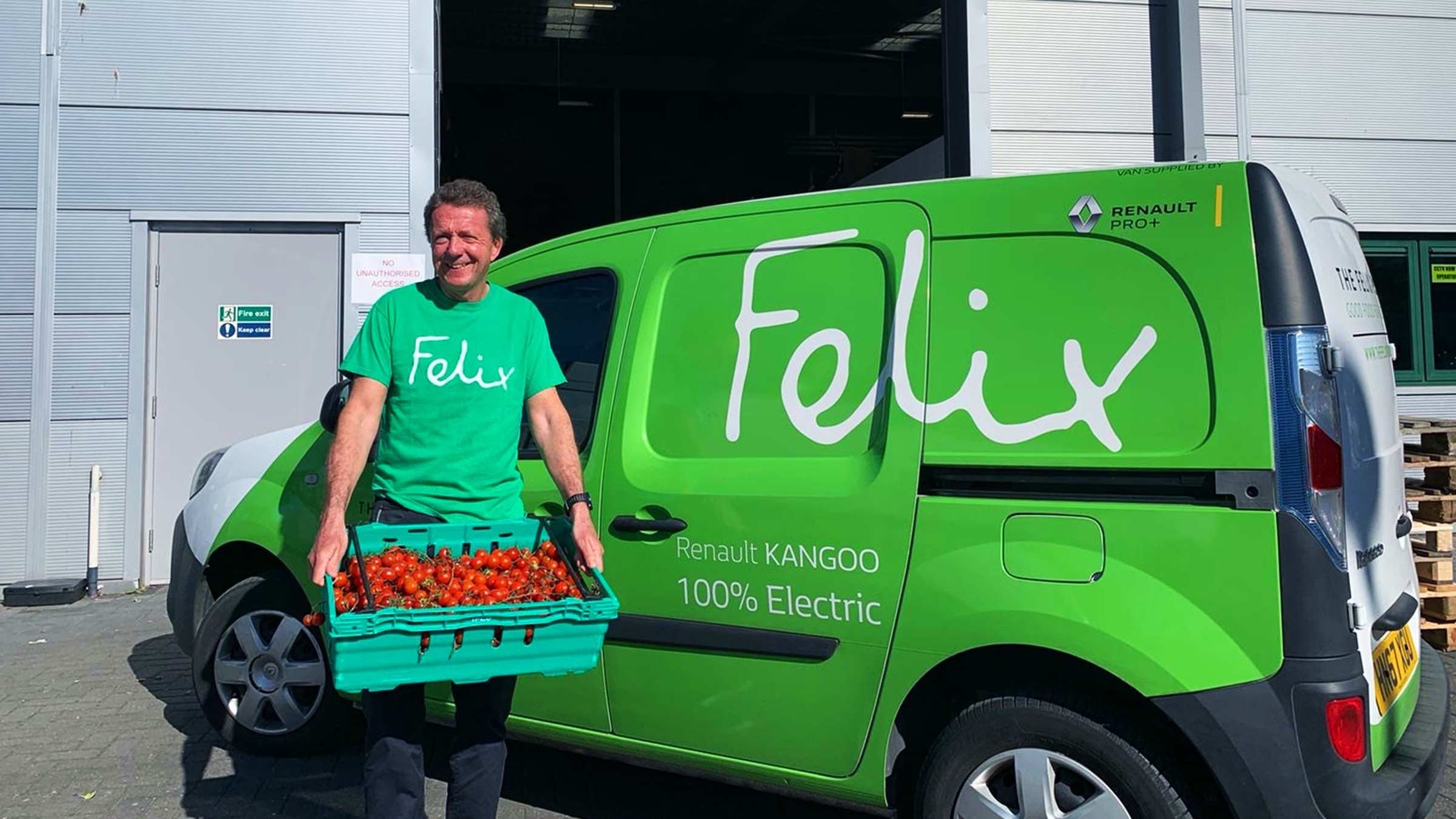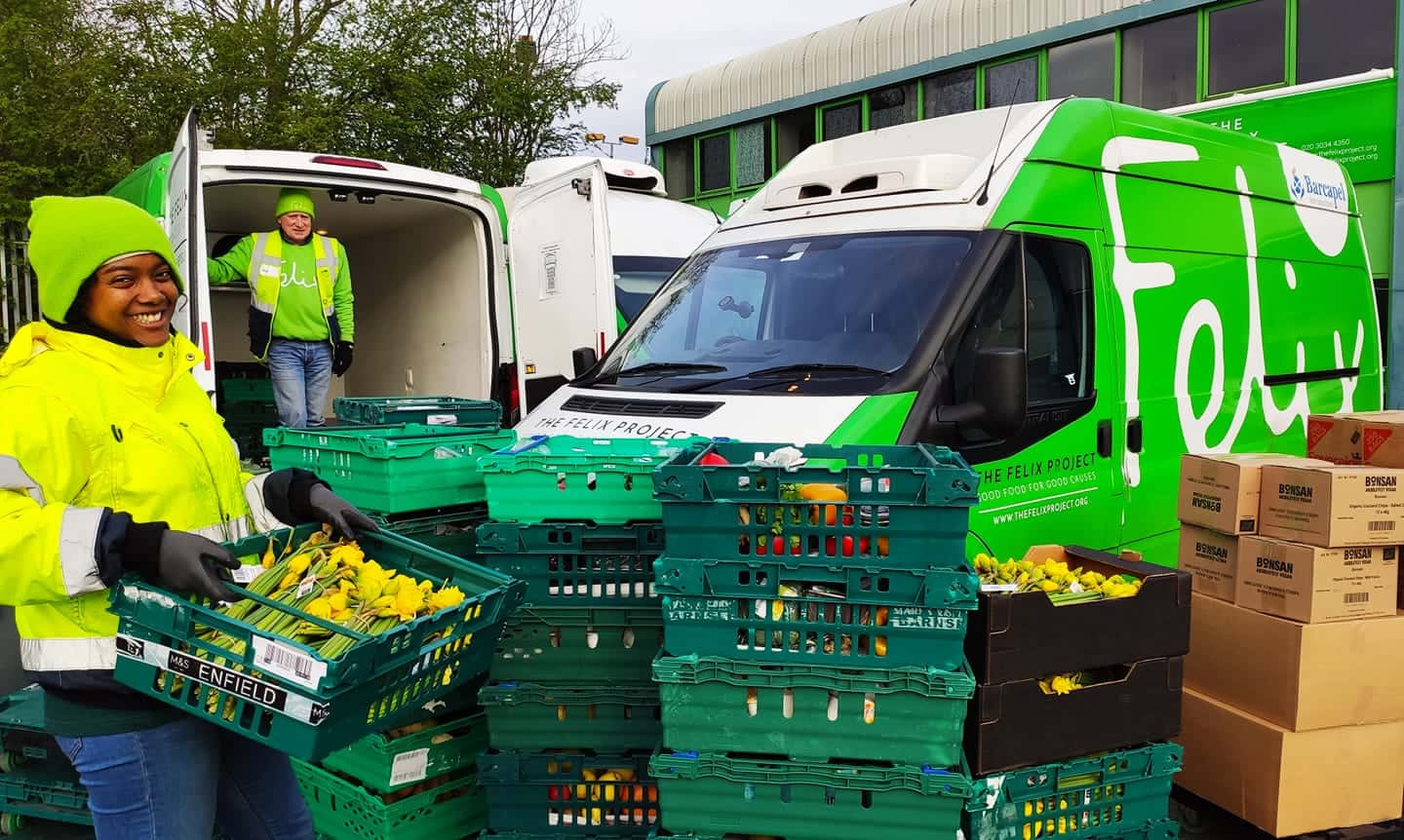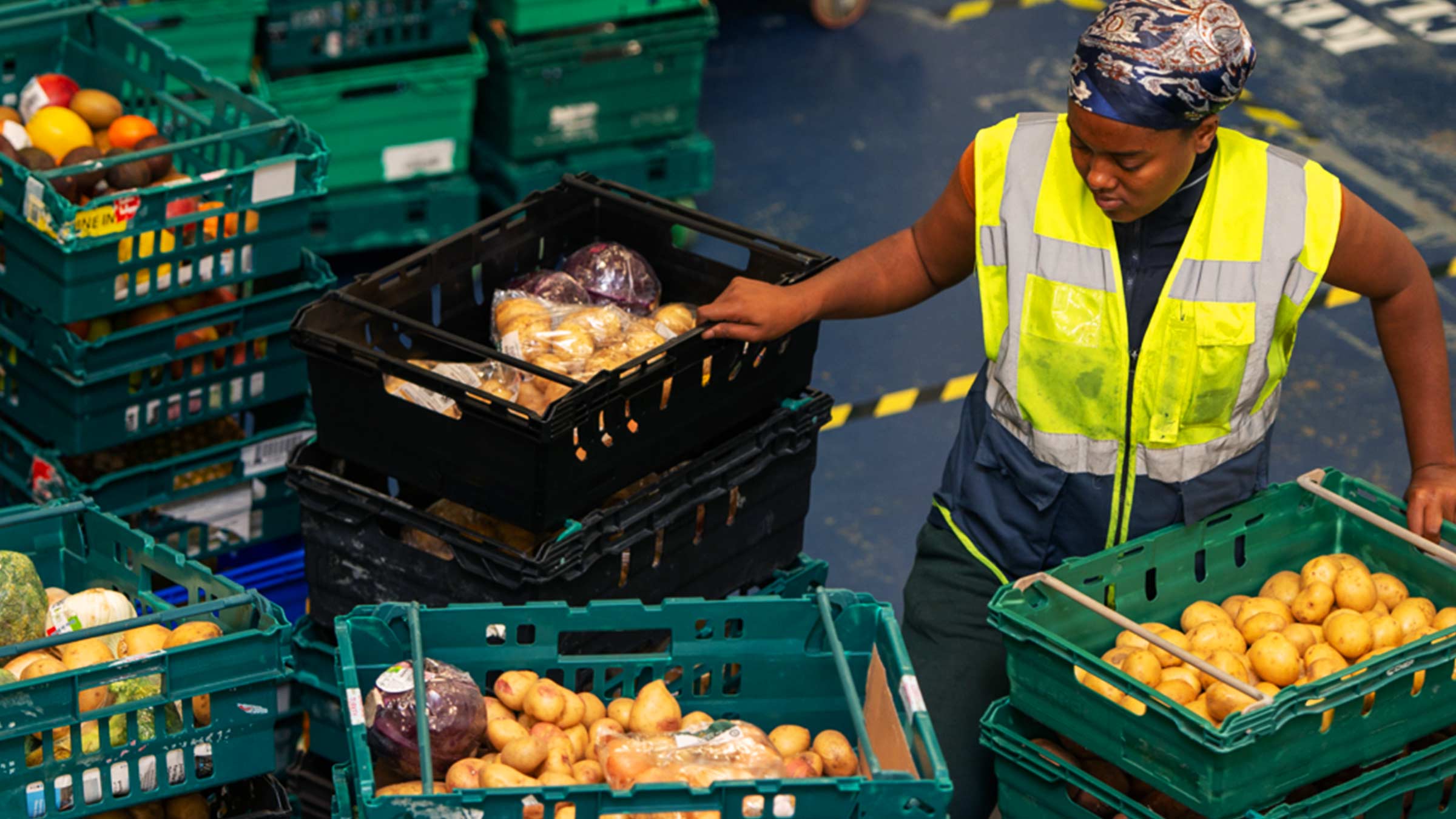It is no secret that retailers, manufacturers, and wholesalers have gone above and beyond to drive social good during the pandemic, rallying together to keep the nation fed in a time of crisis. Indeed, Covid-19 has proved that the food industry can rise to a challenge, playing an integral part in looking out for society’s most vulnerable. With this in mind, it was a privilege to sit down with Gavin Darby last week, to discuss his new position as Chair at The Felix Project.
The Felix Project is one of the food industry’s most exciting and fast-growing organisations, galvanising businesses in the sector to tackle two critical issues simultaneously: food waste and food poverty.
Founded by a husband and wife Justin and Jane Byam Shaw, in memory of their teenage son in 2016, The Felix Project is driven by the simple belief that no-one should have to go hungry. You can tell that it’s special, Gavin says, by the palpable sense of excitement that exists in the charity, the start-up mentality and the tidal wave of volunteers who give up their time to support the cause every month.
“You can tell that it’s special by the palpable sense of excitement that exists in the charity, the start-up mentality and the tidal wave of volunteers who give up their time to support the cause every month.”
Gavin is immensely passionate about his latest role. I wonder: what was it that drew him to The Felix Project?
“There were a couple of reasons,” he tells me, “firstly, I love the two-cause approach. At Felix, we use the resolution of one problem – food waste – to solve another: food poverty. The second reason is the culture. Internal culture is so important and it’s fantastic to be a part of a young, fast-moving organisation with such a clear mission. It feels like a tech start-up!”
By partnering with supermarkets, restaurants, and food service businesses, The Felix Project collects unsold food that would otherwise go to waste and distributes it to organisations on the front-line of fighting food poverty, such as charities, shelters, refuge centres, schools and housing associations. The project focuses on fresh food specifically, to better reflect the nutritional plate. Last year, The Felix Project provided an impressive 6.5 million meals to London’s most vulnerable people, and following the pandemic the numbers look set to double.
“But there is still much more to be done,” Gavin tells me. “We worked with McKinsey last year, who estimated that the demand for food in London amounts to around 110 million meals per year – and that was at full employment, before the crisis hit us.”
When it comes to fighting food poverty in London, there is (as Gavin notes) a hell of a long way to go. But as the former CEO of Premier Foods and the President of the Food and Drink Federation, Gavin is well placed to drive change and guide The Felix Project into its next phase of growth, building on the good work of the founders.
“Firstly, from the supply side, I can use my role as Chair – and my experience in the sector – to forge more meaningful partnerships with suppliers. I spent an hour and a half on the phone with a major supermarket retailer yesterday, and it’s clear that food waste and CSR is rising up the agenda in the sector. The issue has gone up and down the list of priorities over the years, but now that businesses are measuring their progress and reporting on wastage, we are seeing real change from the sustainability side.
“What does need development is an understanding of the food poverty crisis,” Gavin explains. “Business leaders need to pay more attention to the food waste they can’t eliminate and do their bit to dial up redistribution focus in their organisation. Building those relationships and furthering understanding at store level, depot level and head office level is one priority.”
“Business leaders need to pay more attention to the food waste they can’t eliminate.”
The second, he tells me, is more long term, focused on identifying a vision and establishing a growth strategy for The Felix Project. “As Chair, it’s my job to ask the big questions. When everyone else is working like crazy – 60 or 70 hours a week to get the food out the door – it’s my role to help the team take a step back and think holistically about the project’s future.”
Sadly, food poverty is increasing in London, but Gavin is determined that The Felix Project grows with it. “We’re currently in 18 of London’s 32 boroughs – but we’re planning on covering all of them by the end of this year. To keep growing at this rate, we need three things: money, food supply and capacity. Like any startup, we’ve got a clear vision… it’s just working out how to get there. That’s what I can do as Chair – work backwards from where we want to be.”
What’s next for The Felix Project? “One of our best progress-points is targeting demand,” Gavin tells me. “We’re making great strides with targeting specific boroughs, and even wards, in London that are disproportionately affected by food waste.”
Gavin speaks passionately about the battle against food poverty, and urges leaders in the food industry to get involved. “There are always individuals in stores, factories, farms or head offices who care deeply about the issue. If the organisation they are a part of commits to being a part of the change then we can drive real progress.”
Looking ahead, we need to ensure that the collaboration, charity and responsibility displayed so inspiringly by the food industry during Covid-19 is sustained well beyond the crisis. For organisations unsure of how to achieve this, working alongside The Felix Project to tackle food waste and food poverty would be an excellent place to start.
We’d love to hear your thoughts on this – more information can be found at https://thefelixproject.org/










